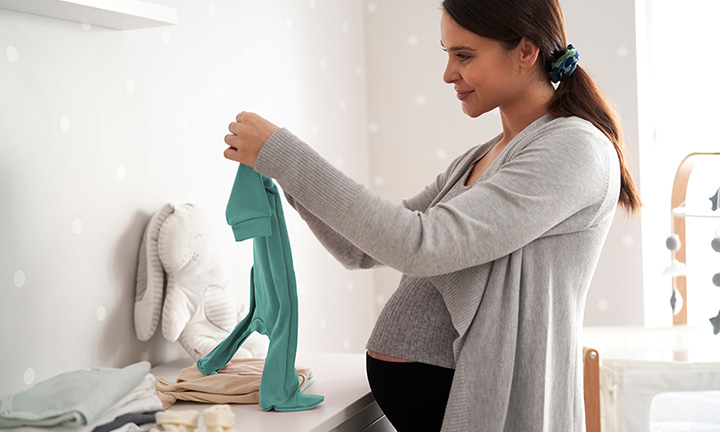
Preparing for Fatherhood: Tips for First-Time Dads
Key Takeaways
Becoming a great parent isn’t about perfection; it’s about presence, patience, and growth. If you’re wondering how to be a father in today’s world, the key lies in building a strong emotional connection, leading by example, and staying actively involved in your child’s life. Here are the core principles, backed by expert advice:
Whether you're a first-time father or looking to strengthen your role as a caregiver, this guide breaks down what it truly means to be a father—starting with the mindset and moving into the daily actions that shape your child’s future. Let’s explore how to prepare for fatherhood with these essential tips.
What Is the Meaning of Fatherhood?
Fatherhood and becoming a father mean showing up—emotionally, physically, and mentally—for your child. It involves nurturing, protecting, teaching, and building a relationship built on trust and love. It’s not about having all the answers; it’s about being a steady presence through every stage of your child's development.
Need ideas for bonding? Explore more on bonding with your baby for nurturing ways to build connection from the start.
What Should First-Time Dads Know and Do?
Stepping into first-time fatherhood can feel both exciting and overwhelming—but preparation goes a long way. While you can’t predict every moment, learning a few key skills and planning ahead can help you feel more confident, connected, and ready to support your baby and your partner from day one. Here’s some essential advice for first-time fathers. And before you get into the details, check out our handy, downloadable checklist.
Learn the Basic
Being hands-on from the start can help you feel more confident and connected. Practice the following skills before your baby arrives:
These foundational tasks help build confidence and foster early bonding.
Help Choose Baby Gear
Here's a checklist of basic baby items:
Check out our newborn baby checklist for all the essentials your little one might need.
Plan the Division of Tasks
Parenthood is teamwork. Discuss with your partner how responsibilities, such as night feeds, diaper changes, cooking, and laundry, will be shared. Open conversations early can prevent overwhelm later.
Before your baby arrives, it’s also a good idea to prepare your home by cleaning and setting up your baby’s sleep and diapering areas. Take on the heavy-lifting or difficult tasks to ensure your pregnant partner doesn’t risk their safety.
Create a Birth Plan Together
While you won’t be the one giving birth, your support is essential. Use our birth plan guide to help you both prepare. Learn about labor roles, including what to expect and how you can help during delivery.
Prepare for Those First Weeks With a Newborn
When preparing for fatherhood, plan ahead to ease the transition when you bring home your little one:
Manage Your Health and Wellbeing
Caring for a baby takes energy, patience, and resilience. Taking steps now to support your own health will help you feel more prepared for fatherhood.
Build Healthy Habits Before Your Baby Arrives
Eating well, staying active, and keeping hydrated can help boost your stamina. Even short at-home workouts or meal prepping can make a big difference once your schedule gets busier.
Get Enough Rest
Sleep is a precious resource for new parents. Try to go into the newborn stage well-rested, and consider making a sleep plan with your partner.
Care for Your Mental Health Too
Stress, fatigue, and big life changes can take a toll on new dads as well as birthing partners. Finding time for hobbies, relaxation, or simply talking things through with friends can help keep you balanced. If you ever feel persistently down or overwhelmed, reach out to your healthcare provider.
Bonding With Your Baby Before Birth
One of the most meaningful ways to prepare for fatherhood is by starting to build a bond with your baby before they’re even born. Research shows that babies can hear sounds in the womb during the second and third trimesters, which means they may recognize familiar voices after birth.
Simple ways to connect include:
These small moments can help you feel more emotionally connected and make the transition into fatherhood more natural once your baby arrives.
Understand Your Partner’s Needs and Mental Health
Pregnancy is a time of emotional and physical change. One of the best tips for being a dad is understanding what your partner may be experiencing. This is essential to building a strong, supportive foundation.
Emotional shifts such as mood swings during pregnancy and even perinatal or postpartum depression can occur, and your attentiveness and empathy can make a big difference.
If you have concerns about your partner’s mental health, talk to them and encourage them to seek professional advice.
Managing Sleep Deprivation
Sleep deprivation is more than an inconvenience—it’s a risk to health, safety, mood, and family well-being.
These small shifts can make a big difference.
Building Your Dad Tribe: Connecting With Other Dads and Their Kids
Being a dad doesn’t mean doing it alone. Connecting with local groups, online communities, or parenting classes can help you feel understood and supported. Sharing experiences reduces isolation and boosts confidence.
Talking to Your Employer About Paternity Leave
As a first-time father, paternity leave is an important step you can take—not only for your child’s development but for supporting your partner too.
More Tips for New Fathers
Here are a few more of the best parenting tips for new dads:
FAQS AT A GLANCE
Start by learning baby basics, supporting your partner, and setting up your home. Building healthy habits and talking about shared responsibilities can help you feel more confident and ready to embrace fatherhood.
The Bottom Line
Fatherhood is a journey marked by learning, patience, and unconditional love. Preparing early, embracing paternity leave, staying present, and supporting your partner all build the foundation for a strong, lifelong connection. Remember—you don’t have to do it alone.
- NCBI: The Sleep-Time Cost of Parenting: Sleep Duration and Sleepiness Among Employed Parents in the Wisconsin Sleep Cohort Study
- Mayo Clinic: Newborn
- NCBI: Postpartum Depression in Men
- Kids Health: Childproof
- Healthy Children: Buying Furniture and Baby Equipment
- Healthy Children: New Dads & Partners: How Your Involvement Matters
- Healthy Children: When can my unborn baby hear me? I'd love to be able to read and sing to them.
- Sleep Foundation: Understanding Sleep Deprivation and New Parenthood
- U.S. Department of Labor: Family and Medical Leave (FMLA)
- Zero to Three: Helping Young Fathers Across the Transition to Parenthood: A Rock or a Rolling Stone?
Read more about Pregnancy
Join a World of Support
through Pregnancy and Parenthood.
TRACK WITH TOOLS
LEARN WITH EXPERTS
GET REWARDED







